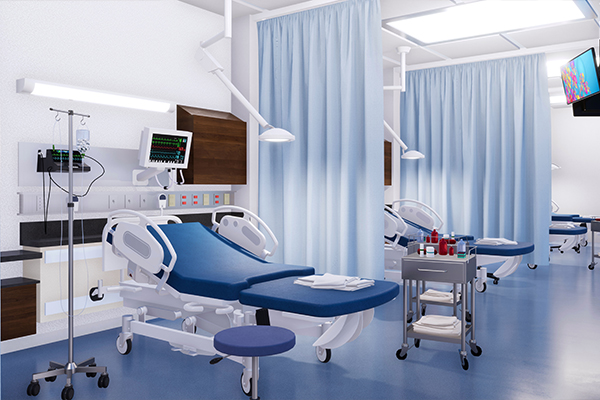“Hospital furniture plays a crucial role in healthcare systems worldwide, serving as an essential component in providing quality patient care, ensuring comfort, safety, and efficiency within medical facilities. From examination tables to patient beds, chairs, cabinets, and specialized equipment, the significance of well-designed hospital furniture, specifically top-quality healthcare furniture, cannot be overstated. In this extensive discussion, we’ll explore the importance of hospital furniture in healthcare systems across various contexts.”
1. Patient Care and Comfort:
One of the primary objectives of hospital furniture is to enhance patient care and comfort. Patient beds, for instance, are designed to provide adequate support, ease of movement, and comfort during recovery or treatment. Ergonomically designed chairs in waiting areas aim to reduce patient discomfort during prolonged waits, contributing to a positive patient experience.
2. Functionality and Efficiency:
Hospital furniture is meticulously designed to ensure functionality and efficiency in healthcare settings. Examination tables with adjustable heights and positions facilitate ease of examination for healthcare professionals, aiding in accurate diagnoses and treatments. Similarly, specialized furniture in operating rooms or intensive care units (ICUs) is tailored to meet specific medical requirements, enabling healthcare staff to perform procedures with precision and efficiency.
3. Infection Control and Safety:
Infection control is paramount in healthcare settings. Hospital furniture, often made of materials that are easy to clean and disinfect, helps prevent the spread of infections. Furniture designed with smooth surfaces and minimal seams reduces the accumulation of pathogens, contributing to a safer environment for both patients and healthcare workers.
4. Adaptability and Accessibility:
Another critical aspect of hospital furniture is its adaptability and accessibility. Furniture designed to accommodate patients with diverse needs, such as adjustable beds or chairs, aids in providing care to individuals with varying mobility levels. Accessibility features in furniture, including handrails or adjustable height options, ensure that patients with disabilities can navigate medical facilities comfortably.
5. Psychological Impact and Healing Environment:
The design and layout of hospital furniture can significantly impact the psychological well-being of patients. Comfortable and aesthetically pleasing furniture, along with well-designed interiors, contribute to a healing environment, reducing stress and anxiety levels among patients. This aspect is increasingly recognized as an essential element in patient recovery and overall healthcare experience.
6. Storage and Organization:
Efficient storage solutions provided by hospital furniture, such as cabinets, carts, and shelving units, play a vital role in maintaining an organized and clutter-free environment. Proper organization enables healthcare professionals to access necessary medical supplies and equipment promptly, contributing to streamlined workflows and improved patient care.
7. Specialized Equipment and Technology Integration:
Modern hospital furniture often integrates specialized equipment and technology to enhance patient care. For instance, patient beds equipped with monitoring systems or adjustable settings for electronic medical records integration exemplify the fusion of technology with furniture, streamlining healthcare delivery and data management.
8. Economic and Sustainability Considerations:
Investing in durable and high-quality hospital furniture contributes to long-term cost-effectiveness. Furniture designed for longevity and sustainability minimizes the need for frequent replacements, reducing operational costs for healthcare facilities. Additionally, sustainable materials and eco-friendly designs align with broader environmental initiatives, promoting responsible healthcare practices.
Conclusion:
In essence, hospital furniture is a cornerstone of efficient healthcare systems, impacting patient care, safety, and overall experiences within medical facilities. Its role extends beyond mere functionality to encompass elements of comfort, infection control, adaptability, and psychological well-being. As healthcare continues to evolve, the importance of well-designed and purposeful hospital furniture remains indispensable in fostering optimal patient outcomes and facilitating the work of healthcare professionals.


